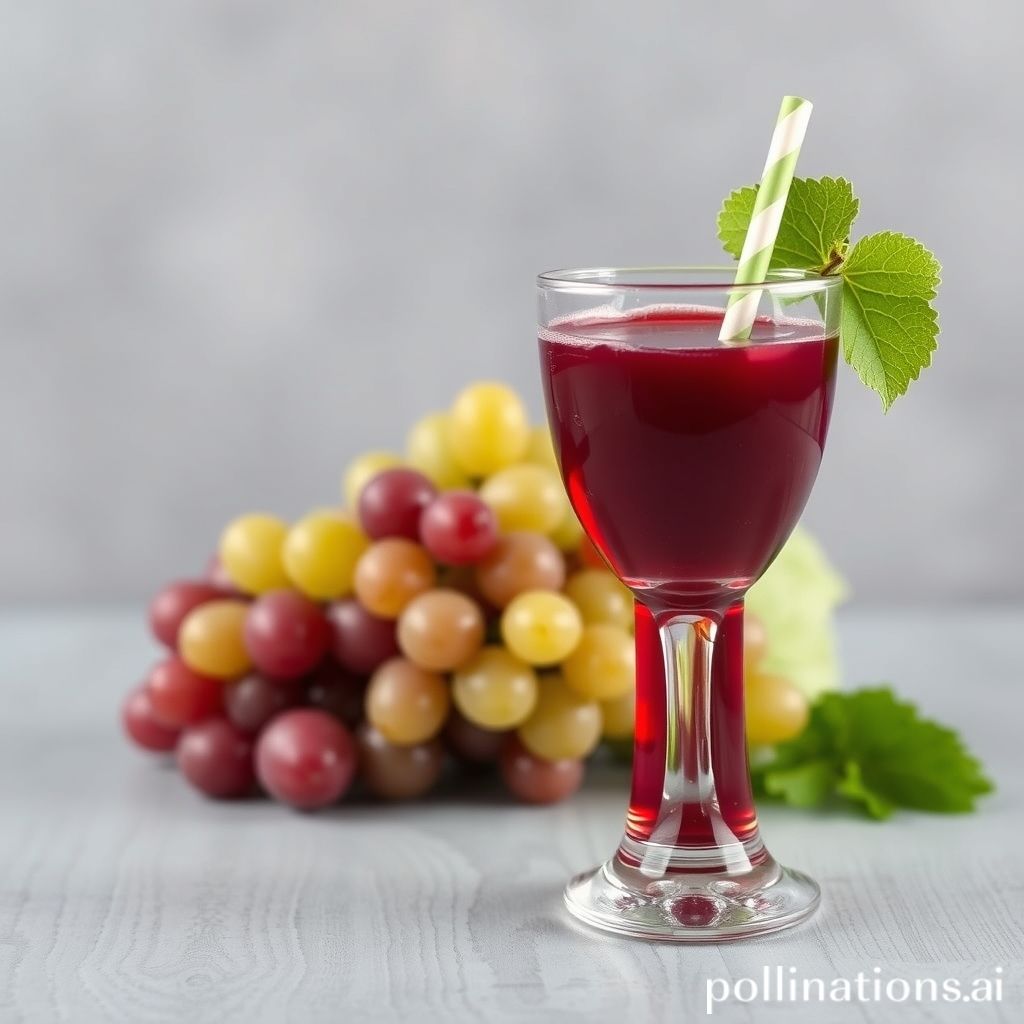Does Grape Juice Cause Acid Reflux?
Get a great start to your day or enjoy a refreshing afternoon pick-me-up with our assortment of delicious grape juice recipes. Whether you’re looking for a tasty breakfast option or a hydrating post-workout treat, our grape juices are the perfect choice.
They offer a sweet and satisfying alternative to sugary snacks, At the same time providing numerous health benefits. Explore our collection of grape juice recipes, ranging from refreshing summer spritzers to nutritious green blends. Discover the taste of pure grape goodness and indulge in the natural flavors of this versatile fruit. Say goodbye to acid reflux and hello to a delightful grape juice experience.

Table of Contents
The Causes and Symptoms of Acid Reflux
Acid reflux, also known as gastroesophageal reflux disease (GERD), is a condition that occurs when stomach acid flows back into the esophagus. This can lead to a variety of uncomfortable symptoms and potential complications. Grasping the underlying reasons for acid reflux is important in managing and preventing this condition.
1. Lifestyle Factors:
Lifestyle choices play a significant role in the development of acid reflux. Certain habits, such as consuming fatty or spicy foods, smoking, excessive alcohol intake, and being overweight, can contribute to the weakening of the lower esophageal sphincter (LES). This muscular ring acts as a barrier between the stomach and the esophagus, preventing acid from flowing back up. When the LES is weakened, acid reflux can occur.
2. Diet and Eating Habits:
Your diet can greatly impact the occurrence of acid reflux. Consuming large meals, especially before bedtime, can put pressure on the stomach and cause acid to move upward. Certain foods, such as citrus fruits, tomatoes, chocolate, caffeine, onions, and carbonated beverages, are known triggers for acid reflux. Additionally, drinking grape juice, which is highly acidic, may contribute to the development or worsening of acid reflux symptoms.
3. Medical Conditions:
Several medical conditions can increase the risk of experiencing acid reflux. Hiatal hernia, a condition where a portion of the stomach protrudes through the diaphragm, can weaken the LES and lead to acid reflux. Other conditions, such as gastroparesis (delayed stomach emptying), peptic ulcers, and certain respiratory disorders, can also contribute to acid reflux symptoms.
Common Symptoms of Acid Reflux:
Recognizing the symptoms of acid reflux is important for early detection and proper management. The most common symptoms include a burning sensation in the chest (heartburn), regurgitation of stomach acid into the mouth, difficulty swallowing, persistent cough, hoarseness, and chest pain. These symptoms may vary in severity and frequency depending on the individual.
Expert Tips: Manage acid reflux by avoiding trigger foods, eating smaller meals, maintaining a healthy weight, and seeking medical advice for underlying conditions.Busting the Grape Juice Myth
Grape juice is often associated with causing acid reflux, but is there any scientific evidence to support this claim? In this section, we will examine the research on grape juice and its effects on acid reflux. Let’s separate reality from fiction and uncover the truth about grape juice and digestive health.
1. Evaluating the Scientific Evidence on Grape Juice and Acid Reflux
Scientific studies have provided valuable insights into the relationship between grape juice and acid reflux. Research has shown that grape juice, like other acidic beverages, can potentially trigger acid reflux symptoms in some people. Conversely, it’s important to note that the severity and frequency of these symptoms can vary from person to person.
Several factors contribute to the likelihood of grape juice causing acid reflux, such as overall health, diet, and lifestyle habits. These factors need to be considered when evaluating the impact of grape juice on acid reflux.
2. Separating Reality from Fiction: The Truth about Grape Juice and Digestive Health
Contrary to popular belief, grape juice alone does not directly cause acid reflux. Acid reflux occurs when the lower esophageal sphincter (LES) weakens or malfunctions, allowing stomach acid to flow back into the esophagus. Meanwhile acidic beverages like grape juice can potentially irritate the esophagus, they are not the sole cause of acid reflux.
In fact, grape juice can offer several health benefits. It is a rich source of antioxidants, vitamins, and minerals, which contribute to overall well-being. Conversely, moderation is key. Consuming excessive amounts of grape juice or any acidic beverage may increase the risk of acid reflux symptoms in susceptible individuals.
| Key Points |
|---|
| u2022 Grape juice, like other acidic beverages, can potentially trigger acid reflux symptoms. |
| u2022 The severity and frequency of acid reflux symptoms can vary from person to person. |
| u2022 Grape juice alone does not directly cause acid reflux, but it can contribute to irritation in the esophagus. |
| u2022 Moderation is important when consuming grape juice or any acidic beverage to minimize the risk of acid reflux symptoms. |
The Advantages of Grape Juice
1. Scrutinizing the Nutritional Value of Grape Juice
Grape juice is not only tasty but also packed with important nutrients that can benefit your overall health. It is rich in vitamins, minerals, and antioxidants, making it a nutritious choice for your daily diet.
2. Highlighting the Potential Health Benefits of Consuming Grape Juice
Consuming grape juice has been linked to numerous health benefits. Some of the potential advantages include:
- Boosts Immune System: Grape juice is an excellent source of vitamin C, which helps strengthen your immune system and protect against common illnesses.
- Supports Heart Health: The antioxidants found in grape juice, like resveratrol, can help reduce the risk of heart diseases by improving blood flow and reducing inflammation.
- Aids Digestion: Grape juice contains natural enzymes that can assist in digestion, promoting a healthy gut and preventing digestive issues like constipation.
- Provides Hydration: Staying hydrated is crucial for overall well-being, and grape juice can contribute to your daily fluid intake In the course of offering a refreshing and flavorful option.

Managing Acid Reflux with Dietary Choices
1. Identifying Foods that Can Trigger Acid Reflux
- Recognizing common trigger foods
- Avoiding spicy, fatty, and acidic foods
- Limiting caffeine and alcohol intake
2. Incorporating Grape Juice into a Balanced Diet for Acid Reflux Management
Grape juice can be a helpful addition to a diet aimed at managing acid reflux. Here are some important points to consider:
- Grapes are low in acidity, making them a suitable choice for individuals prone to acid reflux.
- The natural sugars in grape juice can provide a sweet substitute for acidic or carbonated beverages.
- Choose organic or freshly squeezed grape juice for maximum health benefits and to avoid additives or preservatives.
When adding grape juice to your diet, it’s important to do so in moderation and as part of an overall balanced approach to managing acid reflux. It is always recommended to consult with a healthcare professional or registered dietitian for personalized dietary advice.
| Information |
|---|
| Grape juice is low in acidity |
| Organic or freshly squeezed grape juice is recommended |
| Moderation is key |
Tips for Enjoying Grape Juice Without Triggering Acid Reflux
Grape juice is a tasty and refreshing drink, but for people with acid reflux, it can sometimes cause discomfort. That being said, with a few simple tricks, you can still savor grape juice without experiencing acid reflux symptoms. Here are some suggestions:
1. Choose Low-Acid Grape Juice Varieties
Not all grape juices have the same acidity levels. To minimize the risk of triggering acid reflux, opt for low-acid grape juice varieties. These are often labeled as “low-acid” or “gentle on the stomach.” These varieties go through a special process that reduces the acidity, making them easier to digest and less likely to cause discomfort.
2. Follow Serving Sizes and Guidelines for Acid Reflux
When enjoying grape juice, it’s important to pay attention to serving sizes and follow guidelines to prevent acid reflux. Here are some recommendations:
- Start with small servings: Begin with a small amount of grape juice, like half a cup, and observe how your body reacts. If there are no symptoms, you can gradually increase the serving size.
- Avoid drinking grape juice on an empty stomach: Consuming grape juice with a meal or snack can help dilute its acidity and reduce the chances of acid reflux.
- Sip and savor: Take your time to relish the flavor of your grape juice. Drinking it slowly can minimize the risk of acid reflux. Avoid gulping it down quickly, as this can increase the likelihood of discomfort.
Conclusion
grape juice does have the potential to cause acid reflux. Notwithstanding, it is important for individuals to make informed choices In terms of managing acid reflux.
By understanding their own body’s reactions and taking note of any discomfort after consuming grape juice, individuals can make adjustments to their diet and lifestyle to minimize the occurrence of acid reflux symptoms. It is always advisable to consult with a healthcare professional for personalized advice and guidance. Remember, being aware of your body and making informed choices is key to managing acid reflux effectively.
Faq about Grape Juice and Acid Reflux
FAQ 1: Can grape juice worsen acid reflux symptoms?
Grape juice can potentially worsen acid reflux symptoms in some individuals. It is high in acidity, which can trigger heartburn and other symptoms associated with acid reflux. It is advisable to consume grape juice in moderation and monitor how your body reacts to it.
FAQ 2: Is it safe to consume grape juice if I have a history of acid reflux?
If you have a history of acid reflux, it is recommended to consult with your healthcare provider before consuming grape juice. They can provide personalized advice based on your specific condition and medical history.
FAQ 3: Can grape juice be a part of an acid reflux-friendly diet?
Grape juice can be included as part of an acid reflux-friendly diet, but it should be consumed in moderation. It is important to listen to your body and determine how it reacts to grape juice. Some individuals may find that it exacerbates their acid reflux symptoms, During others may tolerate it well.
FAQ 4: Are there any potential side effects of drinking grape juice for individuals with acid reflux?
During grape juice is generally safe for consumption, individuals with acid reflux may experience side effects such as heartburn, indigestion, or worsening of their acid reflux symptoms. It is best to monitor your body’s response and adjust your intake accordingly.
FAQ 5: How often should I consume grape juice to experience its potential benefits for acid reflux?
The frequency of consuming grape juice for potential benefits in managing acid reflux may vary for each individual. It is recommended to start with small amounts and observe how your body responds. If you notice any worsening of symptoms, it is advisable to reduce or avoid grape juice consumption. Consulting with a healthcare professional can provide personalized recommendations based on your specific needs.
Read Similar Post:
1. Boost Your Health with Cran Grape Juice – Discover the Benefits Today!
2. Is Grape Juice a Natural Diuretic? Find Out the Surprising Truth!
